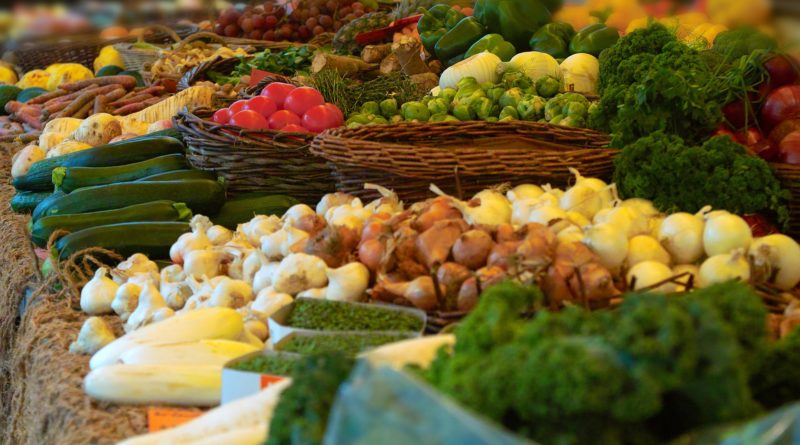Cultivating Hope: Tokyo’s Benevolent Farmer Nurtures Young Hearts
In the bustling metropolis of Tokyo, amid its affluence, luxury, and gastronomic delights, a hidden gem lies nestled in a quiet alley of the city. Surrounded by trendy cafes and top-notch bars, this petite fruit and vegetable stand feels like a countryside escape transplanted into the heart of Japan’s capital.
Rustic wooden tables, weathered by time, host an array of produce, including carrots, potatoes, mandarin oranges, and a bounty of fresh farm goods. What sets this place apart in Tokyo’s urban landscape is its unique payment system – customers drop coins into an aged mailbox, and most items are priced at a mere 100 yen, roughly 70 cents, a stark contrast to the usual exorbitant prices found in the neighborhood.
Retirees often frequent this charming corner in the mornings, but its true mission lies in supporting the younger generation. A handwritten message on the stall addresses them, recounting a story of resilience and growth: “I came here from Hiroshima with nothing. Lived on watermelon for a month, but couldn’t ask mom for help. Thirty years on, I grow plenty of vegetables. Tomo-chan is on your side, so don’t worry about the future.”
This unique produce stand, in existence for five years, has touched the lives of Tokyo’s struggling youth, uncovering a well of despair hidden beneath the city’s glitz and glamour.
“I had no income. My elderly parents were in the hospital. I didn’t know how to support myself,” reads one note adorning the shop’s walls. “Walking to the shrine to pray, I came across your stand. You lifted my spirits.”
Another customer shares, “I also came to Tokyo on my own, lonely and financially struggling. Working my way through school is hard. You’ve become like a second mother to me.”
“Big Respect!” exclaims another, reflecting the gratitude of many.
The kind-hearted greengrocer behind this noble endeavor, Tomo-chan, or Tomoko Oshimo, at 53, begins her day before dawn, tending to her fields in Urawa, just outside Tokyo. Depending on the season, she harvests an abundance of arugula, spinach, snap peas, turnips, onions, eggplant, green peppers, cherry tomatoes, and zucchini. On a recent December morning, Tomo-chan and her teenage son, Satoru, were busy plucking hefty red daikon radishes from the dark, fertile soil.
She augments her harvest by sourcing imperfect produce from the Saitama Central Market, a wholesale hub north of Tokyo. “I can pick up a case of carrots for 600 yen, which would normally cost 2,000 yen,” she explains as she drives to the predawn produce auction. “I obtained a case of grapefruit, still perfectly edible but not suitable for supermarkets, and can sell three for 100 yen.”
Despite her knack for bargaining, complemented by an infectious cheerfulness, Tomo-chan admits she barely breaks even. To supplement her and her husband’s modest incomes, she takes on multiple overnight shifts each week at a nursing center.
Farming runs deep in her blood. “One of my earliest memories is the scent of fresh strawberries,” Tomo-chan reminisces. She was introduced to a strawberry patch as an infant, strapped to her mother’s back during harvest season.
Although she initially pursued teaching preschool and a career as a professional cook, her aspirations always outpaced her financial means. To make ends meet, she delved into real estate, a perfect fit for her natural salesmanship, rapid conversational skills, and boundless energy. She achieved enough success to invest in a vacation house in Boca Raton and a diamond watch. But eventually, she realized that material possessions held no further appeal.
High blood pressure, a near-death experience during childbirth, and a desire to raise her own child led her back to her roots in farming. While selling produce in Urawa one day, a young customer confided in her about his struggle to afford food. This revelation planted the seed of a new mission in her heart.
Leveraging her real estate expertise, Tomo-chan secured a small space in the fashionable Ebisu district of central Tokyo. Familiar with every nook and cranny of the district, she identified spots where even modest pancake vendors and rice ball sellers could thrive.
In her previous life, she prided herself on assessing people’s “value” with a glance. “This person can afford $2,000 rent, while this one is good for only $1,000,” she would confidently proclaim. Now, she finds fulfillment in living without the pursuit of wealth.
In her latest endeavor, Tomo-chan decided to offer her vegetables at affordable prices. “I want young people to know that they are not forgotten, that they are cherished,” she states as she drives her well-worn sedan, loaded with potatoes, oranges, carrots, and radishes toward Ebisu. “Not everyone is solely focused on themselves. I can make money anytime, but right now, I want to extend a helping hand to young people.”
Occasionally, when she arrives late in the day, customers have the opportunity to personally express their gratitude. In return, Tomo-chan enjoys sharing botanical wisdom acquired from a life filled with both joy and adversity. “Even in a field overgrown with weeds,” she fondly reminds them, “you can cultivate something beautiful if you put in the effort.”


